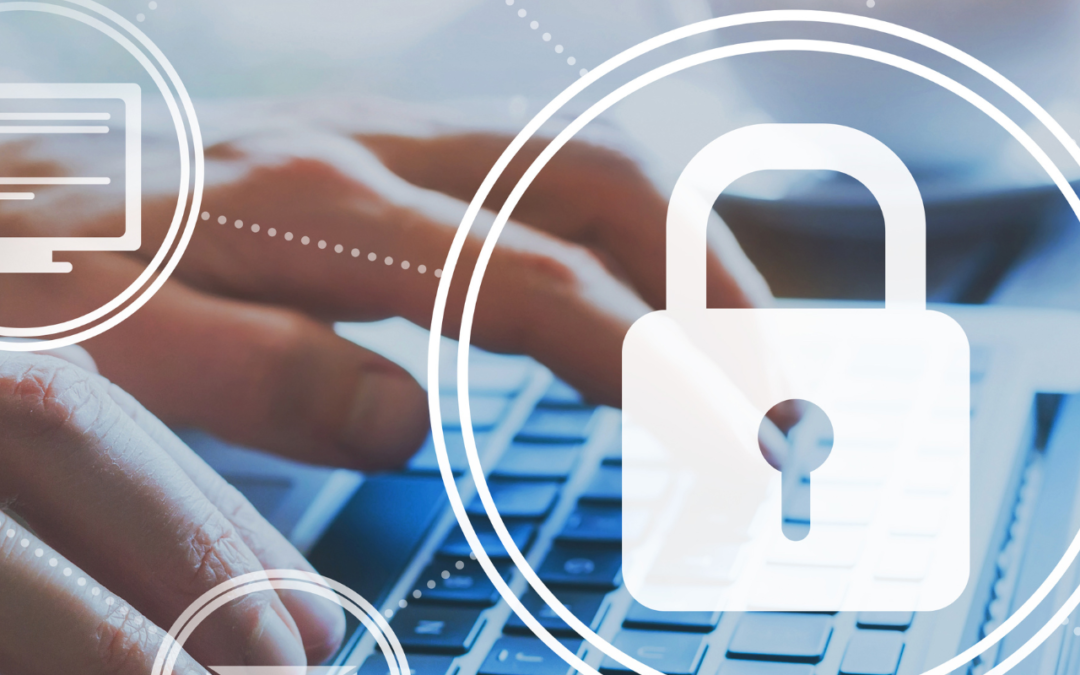
by Divora Mehari | Mar 28, 2023 | Fraud Prevention
March Is Fraud Prevention Month In Canada
Do you know how to stay protected?
Tuesday, March 28, 2023
Knowing the signs and learning how to protect yourself from fraud is your best bet to stay safe.
First and foremost, be wary. Don’t be afraid to hang up the phone, ignore an email or close your internet connection – and please, never be fooled by the offer of a valuable prize in return for a low-cost purchase.
Because of how integrated the internet is in our lives today, scams, hacks, identity theft and many more dangers on the internet are real and all too common.
When checking your EMAIL, something may be phishy if:
- You don’t recognize the sender’s name or email address.
- There are a lot of spelling and grammar errors.
- The sender requests your personal or confidential information
- The sender makes an urgent request with a deadline or the offer sounds too good to be true.
- Also watch out for pop ups, attachments, hidden links and spoofed websites.
To prevent yourself from E-TRANSFER INTERCEPTION, you can:
- Register for auto deposit.
- Always select secure security questions that only you and the recipient would know the answer to, and would be hard to guess.
- Be aware of unexpected transfers.
- Be careful with social media. Giving too much information on social media and using that information in passwords or security question answers can make your accounts an easy target.
PASSWORD SAFETY is paramount for staying safe online. Statistics show that over 50% of Internet users use the same password for all or most of their accounts and sites. It is an easy mistake to make. With so many sites asking for a password, users tend to pick just one that they can remember. However, by doing so, you’re placing yourself in danger of having your personal information becoming insecure. When creating a new password, make sure:
- It is at least 12 characters long.
- It contains uppercase, lowercase, numbers, and symbols.
For example, instead of JoanneandBruce1971 use J0@nn3@ndBruc31971 to make it more complex and harder to guess. During a cyber-attack, a hacker can easily expose potentially millions of user passwords and information. When you use the same password for all your accounts, then hackers can gain access to any account they deem valuable, including your bank account!
Letting your browser remember passwords can be risky. When you do, it’s easy to view actual passwords. This is especially important to remember for websites with sensitive information such as CRA and Financial Institutions. For better security and greater convenience, use a dedicated password vault instead.
For PHONE SCAMS, you must remember there is no prize, you will not be arrested, and, if it’s legitimate, you will not be rushed or required to keep it a secret.
- Avoid answering calls from unknown numbers and don’t return calls from numbers you cannot identify.
- Never give out sensitive personal information over the phone if you cannot verify their legitimacy.
- Never send payment in any form to someone on the phone who you don’t know. A sure sign of a phone scam is when the caller asks for payment by gift card, bitcoin, or a money wire.
SHOPPING ONLINE is faster and more convenient than ever. Unfortunately, where there’s a fast flow of cash, there will inevitably be people looking to steal it. Do your homework! Don’t give out valuable information or make a purchase without really inspecting the vendor. How trusted is the company, and are you making your purchase through appropriate channels?
Always remember:
- Protect yourself from dumpster divers! Bank statements, credit card bills, cheques, old tax returns and any other statements that have important personal information should be shredded when you’re done with them.
- Check your credit report annually and report any issues right away. Better safe than sorry!
- Until you know a business is 100% legitimate, never disclose your financial information, credit card numbers, driver’s license number or any bank information.
If you suspect you’re a victim of fraud, contact your Financial Institution immediately and report it to your local police. If you’re a YNCU member, contact our Service Excellence Centre at 1-888-413-YNCU at the first sign of fraud. Know that you are not alone. We are here to help!
You can also contact the Canadian Anti-Fraud Call Center at 1-888-495-8501. Help us prevent fraud by sharing these tips to look out for with your friends and family!

by Divora Mehari | Jan 17, 2023 | Investing
WHY YOU NEED TO START AN RRSP TODAY
Tuesday, January 17, 2023
Retirement is something we should all be thinking about, regardless of your age or where you are in life. A Registered Retirement Savings Plan (RRSP) is a government approved plan created to help you financially prepare for retirement. Your allowable contributions, which change annually, are tax deductible, and the investment gains will be tax-deferred until you begin withdrawing. So, what does that mean? We’ve compiled everything you need to know about RRSPs and why you need to start one today.
What are the benefits of an RRSP
An RRSP allows you to invest money when you can most afford it – during your peak earning years – to build up a comfortable tax-sheltered retirement fund. Since 100% of these earnings can be reinvested and compounded, the growth of your RRSP can increase rapidly over time. Your retirement savings will also increase significantly if you make each RRSP contribution as soon as allowed, for example, early in the year.
Making an RRSP contribution can potentially reduce the amount of tax you will be subject to pay on your income tax return. The CRA will use your RRSP contribution amount to reduce your taxable income for that year. You can also choose to defer claiming your deductions and use them on a future tax return if you suspect an increase in income that will put you into a higher tax bracket.
Another benefit is that all of your RRSP investment growth is tax-deferred, meaning your investments will compound much faster without the drag of annual taxes, which can be quite significant. The average Canadian family would experience a 15% drag due to capital gains tax and a 30% drag due to the tax on interest payments. Over 40 years this can cut $300,000+ off of your retirement savings. This can easily be avoided by using an RRSP.
Relax, your money won’t be locked in with an RRSP. Withdrawals are permitted before retirement but will be subject to a withholding tax unless being used to fund certain life expenses, such as purchasing your first home through the Home Buyers’ Plan or funding continued education through the Lifelong Learning Plan. These types of withdrawals won’t be taxed as long as you pay them back to your RRSP within the set time period.
Your RRSP account is also protected from creditors. Your RRSP can’t be used to cover liabilities from either a lawsuit or bankruptcy, similarly to a pension. This is what sets RRSPs apart from Tax-Free Savings Accounts and Registered Education Savings Plans, both of which can be seized to cover personal liabilities.
Is an RRSP right for you?
Once you have taxable Canadian “earned income”, even if you’re a non-resident, we suggest contributing regularly to an RRSP. Contributions can be made until the end of the year in which you turn 71 years old. Don’t worry if your income is below the taxable threshold, you should still file a tax return to report your earned income and create RRSP deduction room. The earlier you start, the better – compound interest and upward market trends will be on your side over time. Plus, who doesn’t want their savings to grow faster and tax free?
Ready to be proactive about your financial future?
If setting up an RRSP with YNCU is something on your mind, we have a number of investment options and offer spousal RRSPs. We also offer flexible RRSP loan options to assist you in making your maximum RRSP contribution. Our RRSP loan options include a quick approval process with a flexible repayment plan.
Start looking into a RRSP today! Your future self will thank you.
For all your general financial inquiries and how you can plan out your financial goals, come talk with someone at your YNCU branch!

by Divora Mehari | Oct 14, 2022 | Saving
BE READY FOR THE UNEXPECTED WITH YNCU’S EMERGENCY SAVINGS ACCOUNT
Friday, October 14, 2022
At YNCU, we understand how unpredictable life can be and we want to help set you up for financial success. Oftentimes, when planning finances, people only think of their savings, retirement, and managing their debt. People often forget to plan for emergencies. Emergencies can happen at any time (take the pandemic for example) and you never know when unexpected costs will arise.
An emergency fund is what we at YNCU refer to as the money you set aside to prepare for unexpected expenses, like urgent vehicle maintenance, job loss, veterinarian visits, and health problems that result in missed work. You will more than likely be met with a situation where you need money fast, or experience a drop in income at some point in your lifetime. These surprises usually don’t give you enough time to adjust your budget.
It is important not to confuse unexpected expenses with occasional expenses such as school supplies, winter tires or holiday expenses. Occasional expenses should already be planned for in your budget.
Make sure you are setting aside a reasonable amount each month for your emergency fund. Although it’s important to save gradually and plan ahead, it’s not helpful to break your budget to do so. By putting aside a little every few weeks, you will have enough to cover those unexpected situations. Also remember to take advantage of every chance that can help you add to your emergency fund. Deposit any additional amount into your savings whenever you can. The general rule of thumb is to save 3-6 months’ salary for your emergency fund, but do what works for you and your budget.
YNCU is now offering an Emergency Savings Account that offers a higher rate than our traditional savings accounts, has no minimum balance requirements, and no monthly fees. We recommend setting up recurring contributions to be auto deposited into your emergency savings every pay period. This product was created because YNCU listened to the needs of our members to help them stay on track for their financial goals even when something unpredictable occurs. This emergency savings account makes it possible to:
- Handle an unexpected expense without going into debt
- Avoid high-cost loans (like payday loans or credit card cash advances)
- Avoid incurring costly credit card interest rates
- Have financial control and peace of mind
Learn more about the Emergency Savings Plan here!
For all your general financial inquiries and how you can plan out your financial goals, come talk with someone at your YNCU branch!

by Divora Mehari | Aug 26, 2022 | Financial Literacy
INFLATION AND BACK TO SCHOOL
Friday, August 26, 2022
At YNCU, we know back-to-school can cause a lot of stress during this time of inflation. Rising costs have caused people to have to limit their spending and focus on the essentials. With the upcoming school year fast approaching, parents are concerned about how they are going to pay for these expenses.
A recent Deloitte study says that parents are planning to spend roughly $661 to prepare their families for back-to-school. More than 35% of respondents said they won’t be able to afford back-to-school spending this year. The study also stated that 33% of parents have said their financial situation has worsened over the last year, increasing 11% from 2021.
Schools have been unable to support parents through this difficult time because they themselves are pressed for funding. Some people have needed to work overtime in order to cover the cost of going back to school. Many parents and caregivers are unsure of how they will pay for all the supplies that are needed.
At YNCU we want to help take some of this stress off you by providing tips for the back-to-school shopping season:
Make a plan: Only buy things you need
Oftentimes it is easy to make a new list of school supplies every year and buy everything on that list. Make sure you are taking a look and what you already have from the previous school year. There is no need to buy a brand-new set of pens or rulers if you already have them. Ensuring you are not buying multiples of something that can be reused can help lower the cost of back to school. Teachers will also often provide a school supply list for their classroom, if something isn’t on the list, you don’t need to purchase it.
Set a Budget and Stick with It
Plan a reasonable budget for back to school. Keep your regular expenses in mind when you are creating a budget. Having a budget will ensure you are still meeting your financial goals. Just because your child’s backpack needs to be replaced does not mean you need to spend your entire back-to-school budget on a brand name one. Look for deals or discounts, and switching from your usual brand can be a good way to reduce cost.
It is also important to remember you are not forced to purchase materials for the whole year. It is okay to cut back and buy enough for the first half of the year and allow yourself time to save for the second half. Giving yourself this time will also allow you to stick to your budget and understand what your child is using the most or what they are not using at all. This way you can target your spending during the second half of the school year and reduce cost.
Shop Without Your Kids
We know your kids want to be a part of back-to-school shopping but oftentimes that makes the trip even more expensive. Your kids will beg for things that are not on the list or ask for brand name items. If you shop alone, you are able to ensure that you are only getting the essentials. If your kid really wants brand name items, pick up a couple of items they can wear often like a backpack or shoes. This way your child is able to get what they want but do not have to do a part of the process.
Refurbished Tech Gets the Job Done
Starting early can also help you find the best prices and deals for tech items. Tech is a much-needed item nowadays and people are always on the hunt for the best price. Purchasing refurbished computers or laptops is an option in order to stay within your budget. Laptops and computers can cost upward of $1000 brand new. Refurbished or second-hand technology can make a big difference in the cost of back to school and is also more environmentally friendly. Not everything has to be brand new for the new school year.
Buy in Bulk and Split with Friends
As the cost of almost everything is rising, school supplies are no different. Buying in bulk and splitting the cost with friends can make a huge difference in how much you spend. This can also make shopping more fun as you are able to go with your friends and decide what you both have on your list. Things like pens, pencils, rulers, and notebooks are things that almost all students need. So, if your child has friends from school, get their parents together to save cost on supplies.
Shop With a Cash Back Credit Card
When you are back to school shopping, use a cash back credit card. This way you are able to make money when you make purchases. YNCU has a Collabria no fee MasterCard that can help you with your back-to-school shopping!
For all your general financial inquiries and how you can plan out your financial goals, come talk with someone at your YNCU branch!

by Divora Mehari | Aug 12, 2022 | Fraud Prevention
CYBERSECURITY – WAYS TO PROTECT YOURSELF
Friday, Aug 12, 2022
At YNCU, we know how important it is for you to feel safe with your finances. The threat of cyber-attacks has been on the rise and your finances can be vulnerable online. We want to help keep you safe online. Here are five things you can do to help protect yourself from cyber-attacks:
Change Your Password Often
Ensuring that you are changing your password often can prevent people from hacking into your account. But make sure you are using a unique password every time. Reusing the same three passwords can make it easy for cyber criminals to crack the code. Ensuring you are using a strong password every time is also important. Make sure you are not using a password that is easy to guess, like your birthday. Using personal information as your password allows hackers or A.I. systems to get into your account.
Multi-Factor Identification
Always use multi-factor identification if possible. This is an extra step that can largely reduce the risk of cyber-attacks. If a hacker gains the password to your email, he or she would still need access to your phone to gain the verification code. This makes it harder for hackers because they need multiple pieces of information before they can reach any of your valuable data.
Update Devices
Make sure you are updating your devices regularly. If you have a software update, install it right away. Hackers are always looking for points of weakness within your devices. Outdated software can make it easier for a cyber-attack to occur. Cyber criminals will jump on an opportunity to attack if your devices are vulnerable, so keep up on updates.
Monitor Your Charges
When you are managing your finances, pay close attention to what you are being charged for. Hackers will often steal your information to get access to your financial assets or make a purchase with your card. Make sure you know what you spent and ensure your charges match.
Check Your Social Media Settings
Your social media accounts hold a lot of your personal information. In the wrong hands, cyber criminals can use this information to steal from you. Avoid sharing overly personal information, as it is easy to accidentally share common security questions like your pet’s name or town you grew up in. Add an extra layer of protection by ensuring your account settings are private and can only be seen by people you trust.
Be Cautious of Text Scams
There is currently a rise of text scams, hackers are obtaining your phone number and using this to gain more information. A lot of these scams will claim to be providing you with a refund or a type of cash prize. Be cautious of unexpected texts, especially ones that ask you to click a link or provide personal information. It is always a good idea to ask questions before giving out your personal information.
Watch for Phishing
Phishing emails are emails from cyber criminals that are designed to look like they are from someone you know. Hackers will pretend to be a legitimate person or company to get you to click on a link or to provide them with personal information like your cell phone number or banking information. Be cautious of these emails and trust your instincts. If an email does not seem right, call the person or company directly and inquire about the email. Never click on a link in an email from an unknown sender. Once you are positive the email is phishing, report it!
Be aware of common scams used by cyber criminals, new scams are constantly emerging. Check out our list of common financial scams and videos on why you need to be alert while interacting virtually. Remember, if it sounds too good to be true, it probably is. Read our past blog on fraud prevention to learn why you should always ask why when revealing personal information.
Learn more on how to protect yourself from financial fraud here. At YNCU, we are always looking to give you advice that will make you feel more confident with where your money is going. We are here to help address all your financial concerns. If you suspect you are a victim of fraud, contact YNCU immediately at 1-888-413-YNCU (9628) and report it to your local police. Know that you are not alone. We are here to help!
Come meet with one of YNCU’s experienced financial advisors to learn more about becoming a member and how to take control of your finances. Become a member online!





